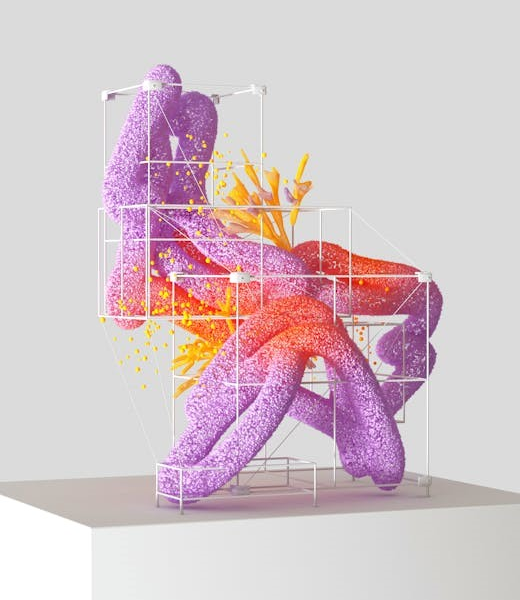A Girl’s Guide to 21st Century Sex⁚ Navigating Relationships and Health
This guide empowers young women to navigate modern relationships and health responsibly, addressing puberty, healthy communication, consent, contraception, STIs, online resources, gender identity, mental well-being, and seeking support. It emphasizes self-acceptance and positive sexuality.
Understanding Your Body and Puberty
Puberty is a transformative period, marked by physical and emotional changes. For girls, this includes breast development, menstruation (menarche), and changes in body shape and hair growth. Understanding these changes is crucial for self-acceptance and managing expectations. Reliable resources like AMAZE (amaze.org) offer age-appropriate animated videos explaining puberty in a clear, accessible way. These resources also help address common concerns and misconceptions, promoting body positivity and self-esteem. Open communication with trusted adults, such as parents, guardians, or school counselors, can provide valuable support and guidance during this significant life stage. Remember, everyone’s experience of puberty is unique, and there’s no “right” way to go through it. Embrace the journey, celebrate your individuality, and seek out accurate information to navigate this exciting phase of life. Don’t hesitate to ask questions – your health and well-being are paramount.
Healthy Relationships and Communication
Building healthy relationships requires open, honest, and respectful communication. Learning to express your needs and boundaries is essential, as is actively listening to and respecting the perspectives of others. Healthy relationships are built on mutual trust, respect, and equality, where both individuals feel comfortable being themselves and expressing their feelings without fear of judgment or coercion. Resources like Scarleteen offer comprehensive guidance on navigating various relationship dynamics, emphasizing consent and healthy communication strategies. Understanding different communication styles and conflict resolution techniques can strengthen relationships and prevent misunderstandings. It’s crucial to recognize unhealthy relationship patterns, such as controlling behavior, manipulation, or disrespect, and to seek help if needed. Remember, you deserve to be in a relationship where you feel safe, valued, and respected. Prioritize your well-being and establish boundaries that protect your physical and emotional health.
Consent and Boundaries⁚ Setting Limits and Respecting Others
Consent is essential in all aspects of sexual activity. It’s a freely given, enthusiastic, and ongoing agreement. Consent cannot be given if someone is intoxicated, coerced, or pressured. It’s crucial to understand that silence or lack of resistance does not imply consent. Learning to clearly communicate your boundaries and limits is vital. This involves setting personal limits on physical intimacy and expressing your comfort levels openly and honestly. Respecting others’ boundaries is equally important. Understanding and respecting the “no” of another person is non-negotiable. Resources like AMAZE provide age-appropriate information and tools for understanding consent, navigating challenging conversations, and establishing healthy boundaries. Remember, you have the right to say no at any time, without feeling guilty or ashamed. Your comfort and safety should always be prioritized. Establishing and communicating your boundaries is a powerful way to ensure healthy and respectful interactions.
Contraception and Reproductive Health
Understanding contraception is crucial for reproductive health. Numerous methods exist, each with varying effectiveness and potential side effects. These include hormonal methods like birth control pills, patches, implants, and injections; barrier methods such as condoms and diaphragms; and long-acting reversible contraceptives (LARCs) like IUDs and implants. Choosing the right method depends on individual needs, lifestyle, and health factors. It’s vital to consult a healthcare professional to discuss options and determine the most suitable method. Open communication with a doctor or healthcare provider is essential to address any questions or concerns regarding contraception. Reliable information on different contraceptive methods is readily available online through reputable sources such as Planned Parenthood and Bedsider. These resources provide comprehensive information about effectiveness, usage, and potential side effects, empowering young women to make informed choices about their reproductive health. Regular check-ups are also important to monitor health and effectiveness of chosen methods.
Sexually Transmitted Infections (STIs) and Prevention
Sexually transmitted infections (STIs) are infections spread through sexual contact. Many STIs are easily treatable with antibiotics, while others require more extensive treatment. Some STIs, if left untreated, can lead to serious long-term health problems, including infertility. Prevention is key, and consistent and correct use of condoms is highly effective in reducing the risk of transmission. Regular STI testing is recommended, especially for sexually active individuals. Open communication with partners about sexual health is crucial. Reliable information on STIs and testing is widely available from various resources including Planned Parenthood, the American Sexual Health Association, and online health websites. These resources provide details on symptoms, diagnosis, treatment, and prevention strategies. Knowing your risk factors and taking proactive steps to protect your sexual health is essential for maintaining overall well-being. Early detection and treatment are vital in managing STIs effectively and preventing further complications. Understanding how STIs spread, symptoms, and treatment options empowers you to make informed decisions about your sexual health.
Navigating Online Sex Education Resources
The internet offers a wealth of sex education resources, but it’s crucial to be discerning. Look for reputable sources like Planned Parenthood, Scarleteen, and AMAZE.org, known for their comprehensive, inclusive, and medically accurate information. These websites often feature age-appropriate content, interactive tools, and videos, making learning engaging and accessible. Be wary of sites lacking clear authorship, medical disclaimers, or those promoting biased or harmful viewpoints. Remember that online information shouldn’t replace conversations with trusted adults or healthcare professionals. Cross-referencing information from multiple reputable sources ensures accuracy and helps you form a well-rounded understanding of sexual health. Utilize online resources to supplement, not replace, conversations with healthcare providers and trusted adults. Always prioritize reliable sources that align with your values and learning goals. Remember to critically evaluate the information you find online before accepting it as fact.
Understanding Gender Identity and Sexual Orientation
Gender identity refers to your internal sense of being a man, woman, both, neither, or somewhere else along the gender spectrum. It’s separate from biological sex assigned at birth. Sexual orientation describes who you’re romantically, emotionally, and/or sexually attracted to. This can include people of the same gender (homosexual), the opposite gender (heterosexual), both (bisexual), or none (asexual). Many other identities and orientations exist, reflecting the diversity of human experience. It’s important to remember that gender identity and sexual orientation are personal and unique; there’s no right or wrong way to feel. Exploring your identity is a journey, and it’s okay to not have all the answers immediately. Resources like Scarleteen and The Trevor Project offer supportive and informative content for young people navigating these aspects of their lives. Self-discovery and acceptance are crucial to a positive relationship with yourself and others. Understanding the spectrum of gender and sexuality promotes respect for all individuals and fosters inclusivity.
Mental Health and Well-being in Relation to Sexuality
Sexuality significantly impacts mental health and well-being. Navigating puberty, relationships, and sexual identity can evoke a wide range of emotions, from excitement and joy to anxiety, confusion, and even distress. Open communication with trusted adults, such as parents, teachers, or counselors, is vital for processing these feelings. Negative experiences, such as sexual harassment, assault, or body image issues, can have profound psychological consequences. Seeking professional help from therapists or counselors specializing in sexual health is crucial for addressing trauma or mental health challenges related to sexuality. Positive self-image and body acceptance are essential components of overall well-being. Remember that seeking help is a sign of strength, not weakness. There are numerous resources available online and in communities to support your mental health journey, including organizations like Planned Parenthood and The Trevor Project. Prioritizing mental well-being alongside sexual health ensures a holistic approach to self-care.
Seeking Help and Support⁚ Resources for Teens
Facing challenges related to sexuality is common, and seeking help is a sign of strength. Numerous resources offer confidential support and guidance. Planned Parenthood provides comprehensive sexual and reproductive health services, including counseling and education. Scarleteen offers inclusive online resources and support for young people navigating sexuality and relationships. Your school counselor or a trusted teacher can provide guidance and connect you with appropriate resources. If you’ve experienced sexual assault or harassment, RAINN (Rape, Abuse & Incest National Network) offers a 24/7 support hotline and online resources. The Trevor Project specifically supports LGBTQ youth facing crises related to their sexual orientation or gender identity. Many community health centers and hospitals provide sexual health services, often including confidential counseling. Remember, you’re not alone, and help is available. Don’t hesitate to reach out to a trusted adult or utilize the many resources designed to support you.
Positive Sexuality and Self-Acceptance
Developing a positive relationship with your sexuality is a journey of self-discovery and acceptance. It’s crucial to understand that there’s no single “right” way to experience sexuality. Your feelings and experiences are valid, regardless of societal pressures or expectations. Embrace your body and its changes throughout puberty and beyond. Challenge negative self-talk and body image issues; remember that media often presents unrealistic ideals. Focus on self-care practices that promote physical and emotional well-being. Explore resources that celebrate body positivity and diversity. Cultivate self-compassion and forgiveness; it’s okay to make mistakes and learn from them. Prioritize healthy relationships based on respect, communication, and consent. Remember that sexual health is an integral part of overall well-being; prioritize your physical and mental health to foster a positive and fulfilling sexual life. Seek support if you struggle with self-acceptance or body image concerns.

